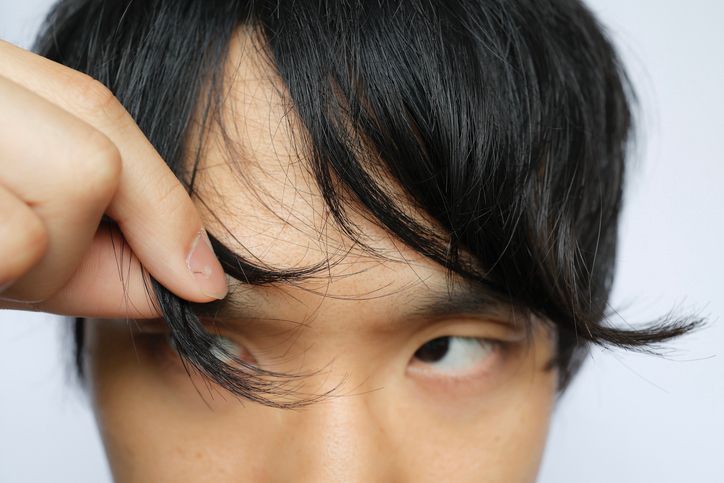
- Home
- Trend
- Weight Loss Strategies
- Acne Tips
- Hair Health Information
- Blemish Removal Tips
- Acne Scar Removal Tips
- Muscle Building Techniques
- Intimate Care Tips
- Postpartum Intimate Care
- Eye Bags Wiki
- Tips for Face Slimming
- Secret of Permanent Hair Removal
- Breast Enlargement Tips
- Cure to Snoring
- Marionette Lines
- Skin-Tightening Secrets
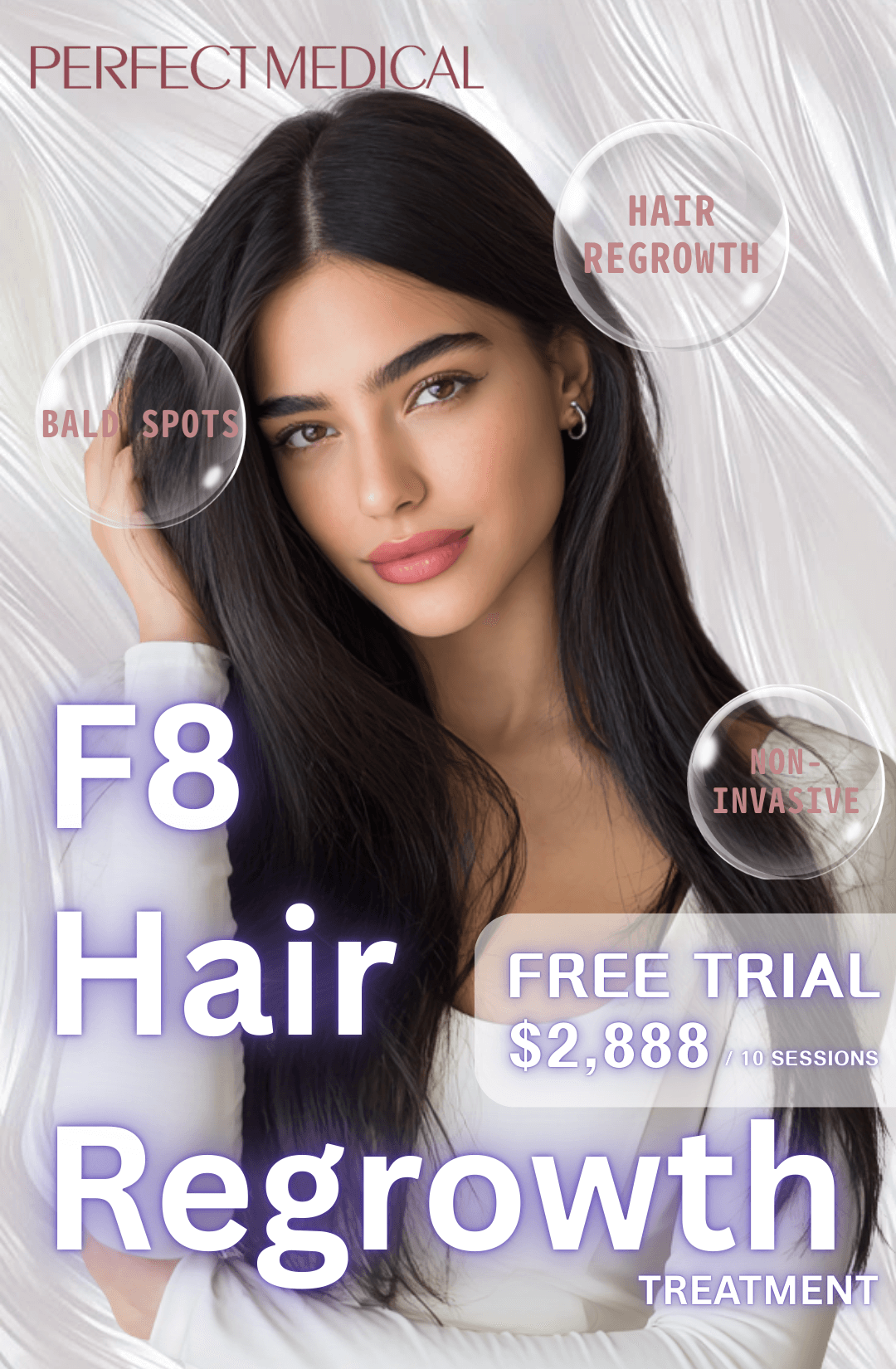
免費體驗
F8 Hair Regrowth Treatment
1 Minute Self-Registration
Date should not be before minimal date
Hair growth is a fascinating biological process that intrigues many, often prompting questions like "How much does hair grow in a month?" and "What factors affect hair growth?" In this article, we delve into the world of how to promote hair growth, exploring the role of hair follicles, the hair growth cycle, common factors influencing hair growth and loss, and diet knowledge that is useful for your daily hair routine!
1
Generally, How Much Can Human Hair Grow In A Month?
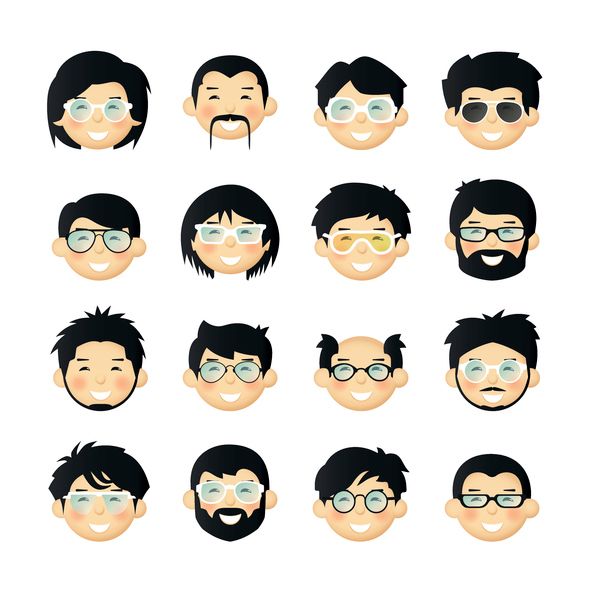
Men vs. Women:
Young vs. Old:
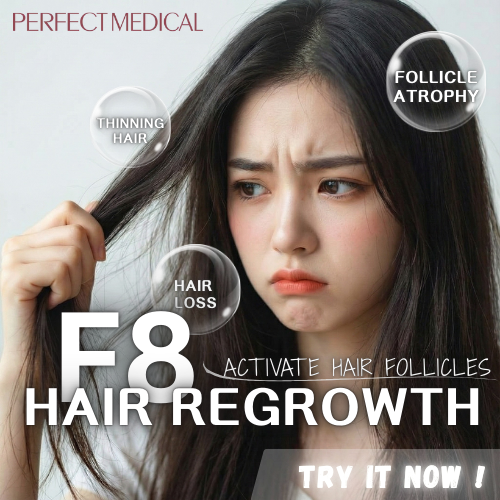
2
Factors That Can Affect Or Slow Hair Growth Process in Singapore
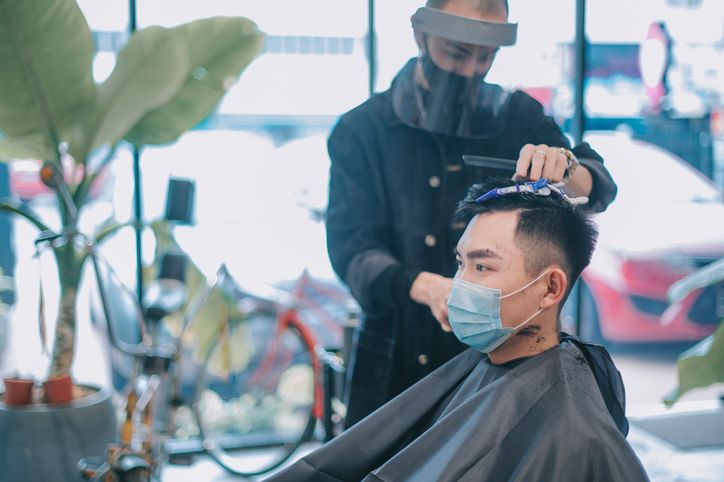
- Here's How To Get The Best Out Of Your Hair Loss Serum
- How to Reduce Hair Fall? Remember These Tips To Keep Your Hair In Check
- Hair Loss and Stress: Everything You Need to Know About Stress-Induced Balding and How to Treat It
- Why is My Hair Thinning? Hair Loss in Hong Kong Women: 8 Top Causes + 22 Science-Proven Hair Growth Solutions: Remedies, Habits, Medication and More
3
Don't Be A Nutrient Freak: Know Them & What They Do To Your Hair


4
Stop Hair Shedding & Gain the Right Speed With Professional Assistance: Perfect Medical's F8 Hair Regrowth Treatment

A treatment that truly keeps your hair healthy
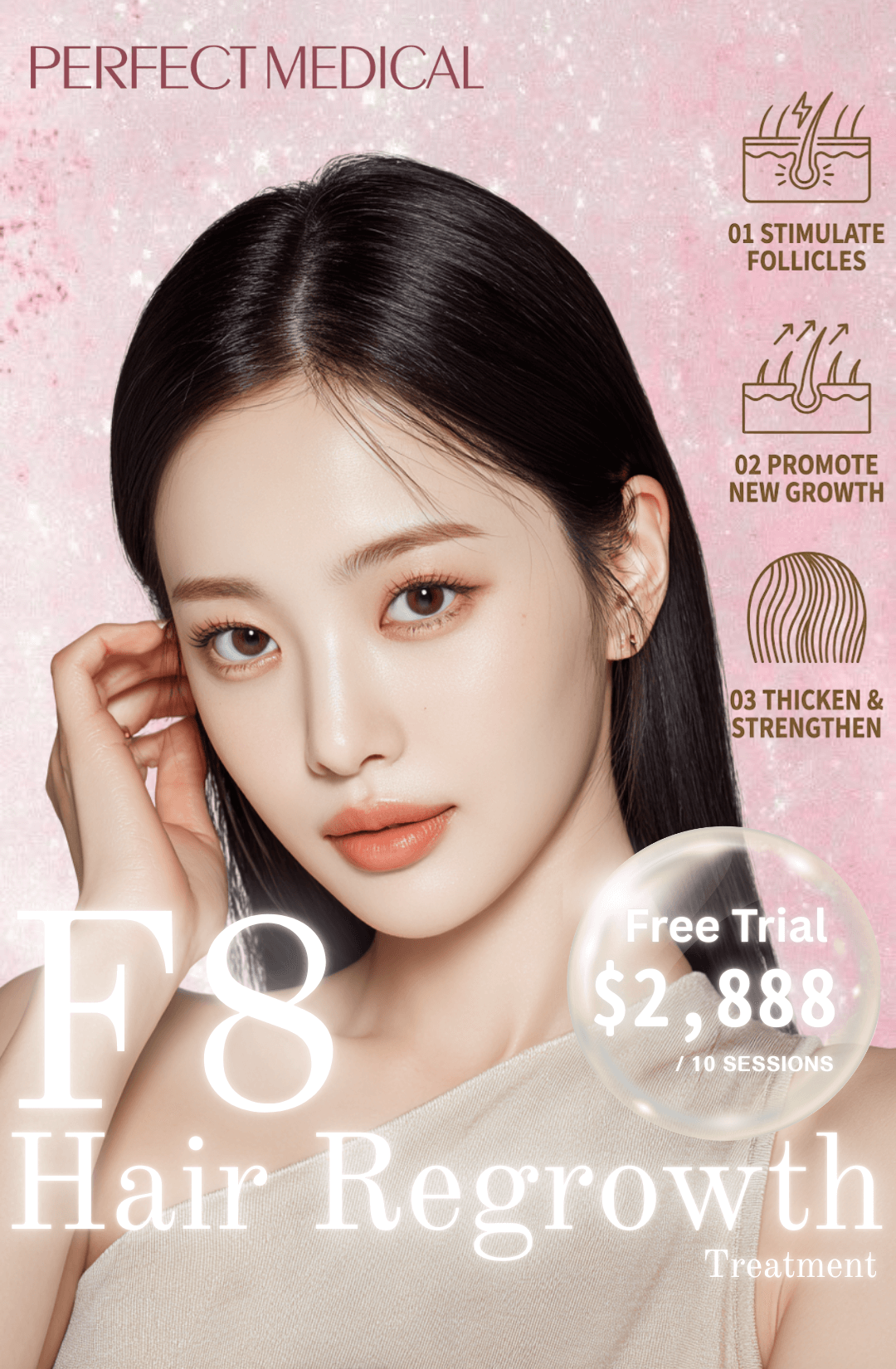
免費體驗
F8 Hair Regrowth Treatment
1 Minute Self-Registration
Date should not be before minimal date
5
Conclusion
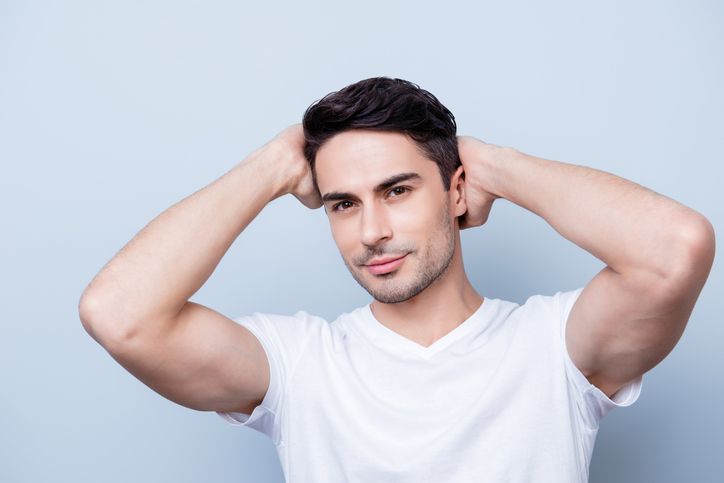
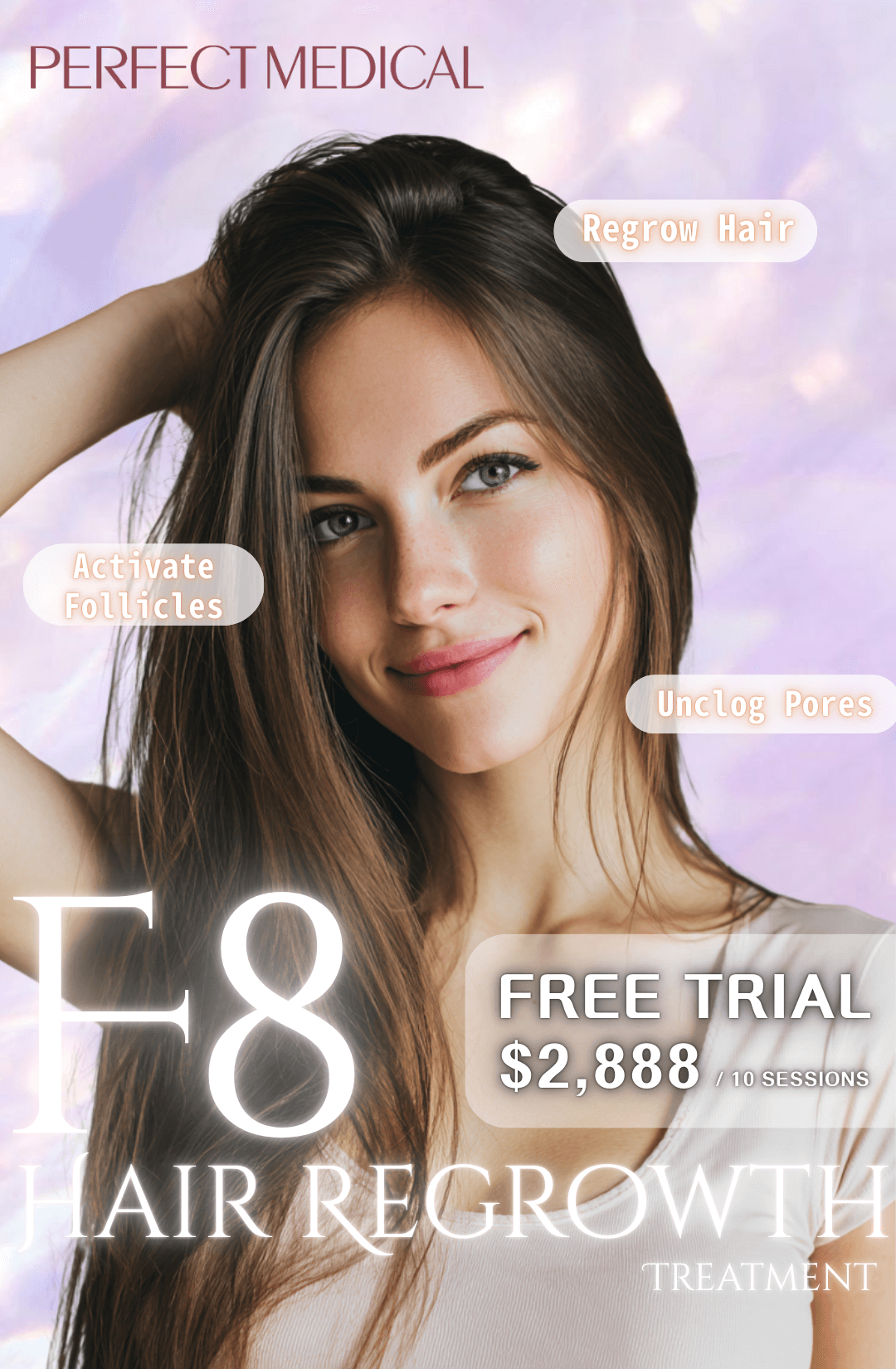
免費體驗
F8 Hair Regrowth Treatment
1 Minute Self-Registration
Date should not be before minimal date
FAQ

1. Can stressful events affect hair growth?
Yes, stressful events can indeed impact hair growth. When the body experiences stress, it triggers the release of hormones like cortisol, which can disrupt the normal hair growth cycle. One common consequence of stress-induced hair loss is telogen effluvium, where a significant number of hair follicles prematurely enter the telogen (resting) phase and subsequently shed. This condition can lead to noticeable hair thinning or loss. While hair loss due to stress is often temporary, managing stress levels and practising relaxation techniques can help mitigate its effects on hair health.
2. Does consuming enough protein help hair to grow faster?
Consuming adequate protein is essential for supporting the growth and maintenance of healthy hair. Hair follicles are primarily made of protein, specifically a type called keratin. Therefore, ensuring a sufficient intake of protein-rich foods provides the building blocks necessary for strong, resilient hair growth. While protein alone may not directly cause hair to grow faster, it plays a vital role in promoting optimal hair health and may indirectly contribute to faster hair growth by reducing the risk of hair breakage and supporting the hair growth cycle.
3. Is it true that people lose more hair during cold temperatures?
There isn't direct evidence suggesting that cold temperatures directly cause increased hair loss. However, exposure to cold weather can impact blood circulation to the scalp. Reduced blood flow may affect the delivery of nutrients and oxygen to the hair follicles, potentially influencing the hair growth cycle. Additionally, cold, dry air can lead to scalp dryness and irritation, which may contribute to hair breakage or shedding. While cold temperatures alone may not significantly affect hair loss, it's essential to maintain scalp health and protect the hair from environmental stressors during colder months.
4. How does lifestyle impact hair growth?
Lifestyle factors play a significant role in hair health and growth. Diet, stress levels, exercise, and overall health can all influence the condition of the hair. For example, a diet lacking in essential nutrients like protein, vitamins, and minerals can lead to weakened hair follicles and slower hair growth. Stress, both physical and emotional, can disrupt the hair growth cycle and contribute to conditions such as telogen effluvium. Additionally, certain lifestyle habits like smoking or excessive alcohol consumption can impair circulation and negatively affect hair health. Adopting a balanced lifestyle that includes a nutritious diet, stress management techniques, and regular exercise can support optimal hair growth and overall well-being.
5. Can you explain why hair type affects how fast hair grows?
Different hair types have varying growth rates due to factors such as hair follicle size, shape, and texture. Generally, coarse or thick hair tends to grow faster than fine hair. This is because thicker hair strands have larger hair follicles and a greater volume of keratin-producing cells, allowing for more rapid hair growth. In contrast, fine hair may appear to grow slower due to its smaller diameter and delicate structure. However, despite these differences in growth rate, all hair types follow the same growth cycle (anagen, catagen, telogen), with individual hairs transitioning through these phases at their own pace.





